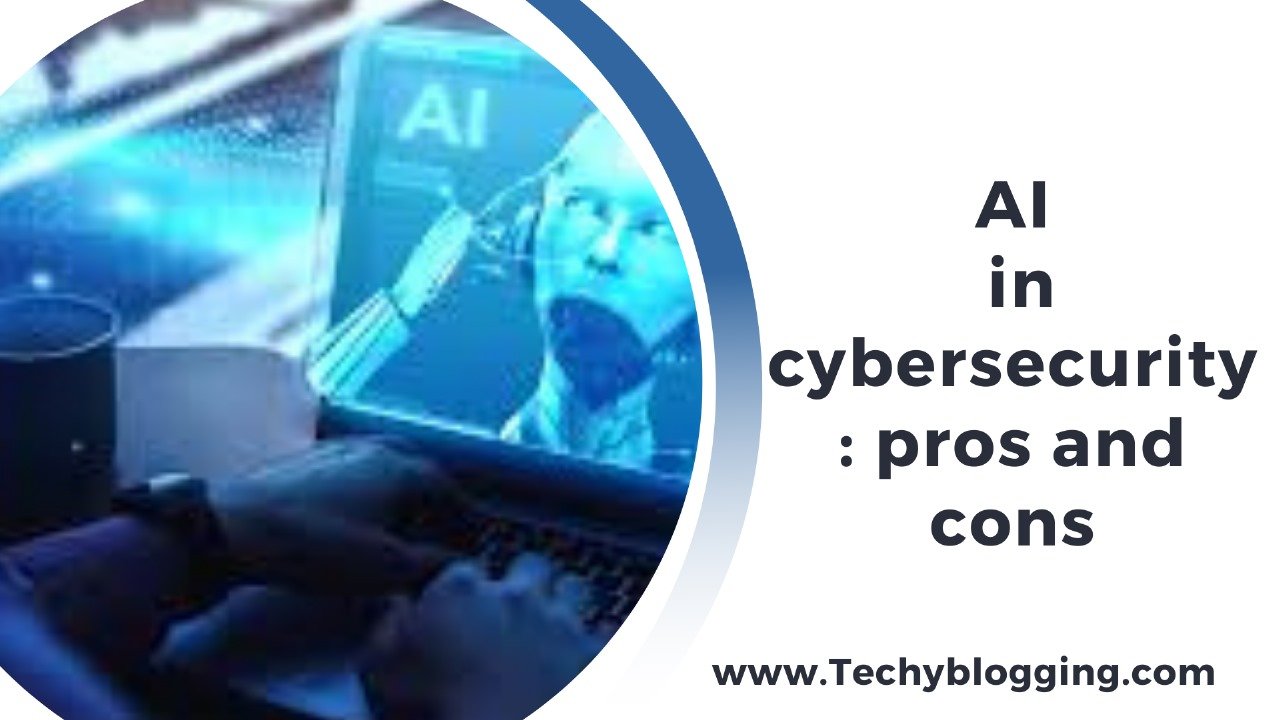Since cyber attacks are constantly evolving in terms of their complexity and frequency. The integration technology known as artificial intelligence (AI) into security technology has seen significant progress. AI’s capability to process huge volumes of information, spot abnormalities and automatically respond is a potent instrument to safeguard the digital environment. But, as with all technologies, AI in cybersecurity brings many advantages as well as significant issues. This article focuses on the advantages and disadvantages of AI for cybersecurity in order to deliver a balanced view.
The Pros of AI in Cybersecurity
1. Enhanced Threat Detection and Prevention
AI excels at detecting patterns and abnormalities in large databases, thereby making it an excellent tool to detect threats. Machine learning algorithms analyse network activity in log files, as well as the behavior of systems in real time in order to detect suspicious activity quicker than humans.
- Anomaly detection AI systems may identify strange patterns in activity or user behaviour which could indicate a security violation. A abrupt rise in the amount of data transferred or an unusual login endeavor from a remote region could trigger more analysis.
- Predictive Analytics: AI can leverage previous data to forecast future threats and security holes. That may be exploited by hackers before they could cause injury.
2. Automation of agenda Security Tasks

AI enables the automation of a variety of routine and lengthy cybersecurity tasks like monitoring, managing patches, and responding to threats of a low level.
- Automated Threat Reaction AI systems will react to security threats automatically, stopping threats immediately without intervention from humans. It reduces the time for vulnerability and speeds up response times.
- Patch Management: AI can help warrant that patches for security are issued quickly across all platforms. Thus reducing the chance of exploits caused by vulnerability that is not patched.
3. Improved Accuracy and Reduced Human Error
AI will help to lower the likelihood of human error, which is a security flaw that is common in. Human analysts are susceptible in the event of fatigue, negligence or mistaken judgment. AI systems can analyze data with greater precision and accuracy.
- Fewer false positives: AI can significantly cut down on false alarms which occur in conventional security system. Through continuous learning and analyzing new information, AI systems increase over time, and get more precise in identifying real threats.
- Data Processing The ability of AI to analyse and connect massive amounts of data in time allows. It to spot dangers that would otherwise remain unnoticed.
4. Scalability and Adaptability
The huge amount of data created by the latest IT infrastructures could overpower traditional security system. AI provides scalability and flexibility to handle large amounts of data definitely.
- handling large data sets: AI algorithms can handle and analyze data on the scale of a business, and can detect potential dangers from massive amounts of data from network logs, traffic and other endpoint-related data.
- Dynamic adaptation as cybercriminals continually change their strategies AI systems respond to threats that change in order to learn from the latest threats, creating flexible defense mechanisms.
The Cons of AI in Cybersecurity
1. Complexity and High Implementation Costs
Although AI is a great technology but it’s not completely free of obstacles. Implementing cybersecurity tools based on AI could be a complicated and costly process.
- Very high set-up costs Development and implementation of AI-powered security solutions requires substantial investment in expertise, technology as well as resources.
- Integration challenges The integration of AI solutions within existing security frameworks and infrastructure could be a technical challenge. Businesses may require a rethink of their security framework to support AI-powered systems that could cause disruption to operations in the period of transition.
2. Risk of Adversarial AI Attacks
One of the new dangers that is associated with AI security is the potential for an adversarial AI attacks. Cybercriminals might endeavor to alter AI systems in order to circumvent security measures.
- Evasion Methods: Hackers could use specially-crafted inputs to AI models that cause. The AI system to miss or miss the threat. This could compromise the efficacy of security measures based on AI.
- The weaponization process of AI The same way that AI can be utilized as a defense tool. It could be used by criminals in order to build advanced cyberattacks. This includes AI-driven malware that can be adapted to avoid detection.
3. Dependence on Data Quality
AI systems heavily rely on data to train as well as decision-making. If the information fed to the AI system is not accurate or incomplete this can result in incorrect results.
- Bias in the Training Data When the AI algorithm is trained using flawed or inaccurate information. It could not be able to detect certain kinds of threats, or incorrectly identify harmless activity as criminal. The result could be false positives or false negatives.
- Privacy Issues with Data Collection and analysis of large amount of data, including sensitive information or private, could raise privacy issues. Businesses should warrant they’re in compliance with the regulations governing data protection (e.g. GDPR) in the case of security solutions based on AI.
4. Lack of Human Oversight
Although AI is capable of automatizing certain security processes however, an entirely automated system that is not supervised by humans is a risk, especially when it comes to novel or complex situations in which human judgment and decision-making is required.
- Dependence too much on Automation Dependence too much on AI for security decision-making can result in the absence of human involvement when an understanding of the context and critical thinking is required. In certain situations humans might be required to analyze the AI’s results and make a judgment call about possible security threats.
- The potential for AI mistakes: AI systems can be prone to errors, particularly when confronted with unpredictability or data that is unclear. If there is no oversight by humans such errors can not be noticed and cause unnoticed vulnerabilities or incorrect actions.
Conclusion
AI is poised to drastically alter the security landscape by providing faster detection of threats as well as improved accuracy. the capability of automating regular jobs. The scalability and flexibility of AI make it a viable option for companies facing ever complex cyber-attacks. But there are some notable issues, such as expensive implementation costs as well as the threat of hostile AI attacks and data quality problems as well as the requirement for continuous monitoring by a human.
In order to fully reap the advantages of AI in cybersecurity, businesses have to carefully consider advantages and disadvantages, taking into account the specific requirements for security and capabilities. The use of a hybrid strategy, combining artificial intelligence-driven systems and human experience is the desirable method to warrant secure and flexible cybersecurity tactics in a constantly evolving security context.




